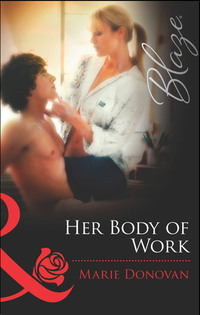
Полная версия
Royally Claimed


Julia shivered, half from desire and half because the temperature had dropped precipitously.
Frank noticed, but she had the feeling he noticed everything about her. “Go upstairs to the master suite where I’m staying. There should be a sweater in the closet. I’ll bring these blankets downstairs.”
Back to her fantasy room. She ducked in and grabbed a yellow fleece pullover that made her look like a hazard sign.
Returning downstairs, she noticed Frank had set the blankets on the big leather couch in front of the fireplace and was eyeing the iron firewood rack. “We don’t have much wood inside. I’ll go to the shed in back to bring more in.”
“Do you need me to help?”
He laughed. “You’re asking a Portuguese man if he wants a woman to help him with heavy lifting? Remember where you are.”
“Hmmph.” As if she could forget the near castle they were in. “Would you like me to cook or clean something while you do all the manly work around here?”
He gave her a long look up and down her body. “You make me wish I could do even more manly work for you.” With a wink, he disappeared out the kitchen door.
About the Author
MARIE DONOVAN is a Chicago-area native who got her fill of tragedies and unhappy endings by majoring in opera/vocal performance and Spanish literature. As an antidote to all that gloom, she read romance novels voraciously throughout college and graduate school.
Donovan worked for a large suburban public library for ten years as both a cataloguer and a bilingual Spanish story-time presenter. She graduated magna cum laude with two bachelor’s degrees from a Midwestern liberal arts university and speaks six languages. She enjoys reading, gardening and yoga.
Please visit the author’s website at www.mariedonovan.com.
Royally Claimed
Marie Donovan

www.millsandboon.co.uk
MILLS & BOON
Before you start reading, why not sign up?
Thank you for downloading this Mills & Boon book. If you want to hear about exclusive discounts, special offers and competitions, sign up to our email newsletter today!
SIGN ME UP!
Or simply visit
signup.millsandboon.co.uk
Mills & Boon emails are completely free to receive and you can unsubscribe at any time via the link in any email we send you.
To all my English teachers in high school, my Spanish, German and French teachers and professors, and to the little old signora at the language school, who taught me just enough Italian to be dangerous. I couldn’t have written these books and the previous seven without you. Many thanks, in whatever language you choose.
1
JULIA COOPER SQUEEZED her eyes shut and blinked hard a few times as she sat at a small café table. She couldn’t have seen what she’d thought at first. Ever since her concussion, she didn’t quite trust how her optic nerve was shooting messages back to her cerebral cortex. Misbe-having brain. Had to be playing tricks on her.
Even so, her heart still pounded as the man walked down the cobblestone street. He chatted with an older man, hands moving animatedly. Darned if he didn’t look like Frank, at least from the back, black hair curling over his collar as if he’d forgotten to get a haircut. The man disappeared around a corner before she saw his face. Of course, all the men on this Azorean island of São Miguel, St. Michael’s island, were dark, their sunny Portuguese heritage transplanted to a cool and misty string of rocks in the middle of the North Atlan- tic. Although the chain of islands stretched almost four hundred miles from end to end, São Miguel, the largest, was less than three hundred square miles in area according to her father, a huge geography buff.
Did the Azorean men ever have some ancestral longing for the hot, dry mainland, she wondered idly. A remnant of mitochondrial DNA passed from their mothers that made them crave the juice of blood oranges running down their chins as the Mediterranean sun beat on their heads?
She shook her head—cautiously, though. Fanciful thoughts for a decidedly unfanciful woman. Perhaps she was experiencing one of those moments that the poets described, where magic and reality entwined, the hazy time between waking and sleeping when you dreamed strange things—or were they dreams?
And what was reality? Was it that past life of hers in Boston, that world of white fluorescent, green scrubs and red blood? Blood and oranges. Blood oranges. She had a sudden craving for citrus, a craving for sun.
Or was it a Vitamin C deficiency? Ah, there was her normal nature asserting itself. She laughed softly, not wishing to appear as flaky on the outside as she sometimes felt on the inside.
It was normal, they had assured her. Normal, she scoffed. As if anything that had happened to her could be called normal.
But she was here, not just in the Azores, but here here, alive and breathing. Still on this earth. And that was something. What, she couldn’t exactly say.
Frank, the recesses of her mind whispered to her. Francisco, they insisted. And that was what she had feared, coming back here—the insistence of her thoughts. Not just her thoughts, her emotions.
Enough. Julia set her coffee cup down with a resolute clink and stood. Good, no more dizziness today. But she was a bit tired. Fatigue is your body reminding you to rest. She had learned that in nursing school and grad school, but mostly ignored it. Her reserves were much lower now than back then.
Home again, home again. She picked her way along the uneven street, stopping to peer into store windows. Around her, friends greeted each other with affectionate cheek kisses, talking animatedly in the local Azorean dialect. She remembered a couple of words from when she was a child but not enough to understand their conversation.
Julia just let the noise wash over her and bought an English-language newspaper for her dad and a German candy bar her mother enjoyed. She climbed a small hill to her parents’ apartment in a renovated old stone farmhouse, brushing her dark curly hair out of her face in the ever-present ocean breeze.
She could use a good trim. Her hair was the type that grew bigger, rather than longer, and the humidity was poufing her hair into a dark facsimile of a clown wig. Maybe she’d ask around to see if any of the island beauty shops could handle the daunting task.
She waved to their landlord, Senhor de Sousa, who offered her fresh berries. He chatted away to her in a mix of English and Portuguese. She nodded and smiled and couldn’t help contrasting it with her own condo building, where she knew her next-door neighbors only by sight and not by name.
She gracefully withdrew from what looked to be a rather involved conversation and climbed the steps to the apartment.
Instead of seeing her parents sharing a quiet cup of coffee, they were in a tizzy. Her mother paced back and forth, listening intently to the phone while her dad clicked away on the laptop. “If we book now, we can get a flight out later this afternoon,” he called.
Mother made an impatient gesture and then caught sight of Julia. “Oh, thank goodness. Here, my daughter is a nurse. Tell her what’s going on.” She shoved the phone at Julia, who grabbed it.
“Who’s sick?” she hissed.
“Your great aunt Elva and uncle Paul.”
Julia winced. Aunt Elva and Uncle Paul were her favorite relatives. “Hello?” Unfortunately, she was speaking to a hospital social worker. Her aunt and uncle had been driving along minding their own business when a truck plowed into their sedate sedan. Aunt Elva had bruised ribs and a broken arm, needing pins put in to stabilize the fracture. Uncle Paul had a broken leg but wouldn’t require surgery as long as he kept off his feet. “No head injuries or broken hips, pelvises, nothing like that?”
The social worker assured her that wasn’t the case and Julia quickly explained to her mom and dad. Broken hips and pelvises were almost a death sentence for the elderly, few recovering well from that injury.
Julia made a few notes on the paper that her mother shoved at her. They were in a hospital in the Boston suburbs, one with a good reputation for patching people up. She told the social worker someone would be there in a couple days when they were released and got the direct number for their hospital rooms to call later. She hung up. “So when are we going?”
Dad looked up from the laptop, peering over his half-moon reading glasses. “We can get a flight out tomorrow morning and be in Boston in under five hours.” Thanks to the large Azorean community in Boston, direct flights were pretty frequent, by Azorean standards.
Her mother twisted her hands together. “But what will we do about Julia?”
“What do you mean? You don’t need to do anything about me. I’m coming with you. Aunt Elva and Uncle Paul won’t stay in the hospital for very long. When they go home, they’ll need nursing care, and I am a nurse. A nurse practitioner, even.”
Her dad shook his head. “They need somebody who can help them up and down to the bathroom, move them around in bed. Basic nursing assistant skills. Brute strength that you don’t have. You fall over if you stand up too fast.”
“Dad!” He had all the tact of a bull from one of the local ranches.
As usual, her mother stepped in to smooth Dad’s bluntness. “I know you would do anything to help, but Julia, honey, you’re not strong enough right now.”
Great. Her parents thought she was as much an invalid as her poor aunt and uncle. At least she could make it to the bathroom on her own.
“We want you to come back with us,” her mother continued. “You can sleep on the pullout couch at their apartment.”
Julia winced. Aunt Elva and Uncle Paul had a modest two-bedroom apartment, big enough for them, but a tight squeeze for five adults plus whatever nursing staff they needed.
Her dad raised his eyebrows. “Come on, Evelyn, you know we’re going to be packed in like sardines, anyway. And what is Julia going to do all day with us old folks? Watch game shows and soap operas?”
No need to watch soap operas, her life had been one for quite a while.
“We can get you set up at your condo, and then you can come spend the day with us!” her mother exclaimed with a sudden bright idea.
Julia caught Dad’s sympathetic gaze. He knew she would be climbing the walls within a few days. At least it was spring in Boston, although mid-April was a toss-up with the real possibility of snow. “No,” she said impulsively, “I’ll stay here.”
“What? No, you can’t,” Mother protested. “By yourself?”
It sounded better the longer she thought about it. Go back to gray, cloudy Boston, bundle up in her down parka and stagger around in the slush or stay here in the sunny green Azores and eat fresh oranges from the trees? “I’m doing much better.” Julia ticked off the points on her fingers. “I haven’t had a bad headache in the past week, I’m not dizzy very often, and Senhor de Sousa can help with anything I may need. He would do that anyway.”
“Oh…” Mother fretted. “I would worry so, with you so far away.”
Dad unexpectedly came to her rescue. “Evelyn, we’d be only four hours away by plane. The girl is getting stronger and we can’t be hovering over her like a helicopter. She’d be more likely to have a nervous breakdown than a relapse with us.”
“Thanks, Dad.”
He pointed a thick finger at her. “But we expect you to have some common sense. Carry your cell phone with you and stay away from cliffs and those rodeos they call bullfights around here.”
“And call Dr. da Silva if you start feeling funny.” Her mother rummaged in the papers on the table. “Here’s his number. But I don’t know…”
“I’ll be fine,” she assured her mother. “I’m just not…ready to go back to Boston yet.”
“Understood,” Dad said. “But just say the word and I’ll hop a flight back to São Miguel to collect you.”
“Thanks.” She smiled at him. Master Sergeant Robert Cooper, United States Air Force (ret.), was an expert at hopping flights and collecting people.
The rest of the evening was spent helping her parents pack, mostly her mother since Dad could pack anything into a small duffel bag and proclaim himself well supplied.
When Julia brushed her teeth that night, the memory of that dark-haired man in the plaza popped to mind. Was she staying behind just in case he was Frank? And what on earth would she do if it was her former lover? Her first lover, she mentally corrected herself. The first man she’d loved.
FRANCISCO DUARTE DAS Aguas Santas stared at a wall of paint chips until spots formed in front of his eyes. Yes, he knew the villa needed a fresh coat of paint, but why was he the one picking out colors? He glanced at Benedito, whose dark brown eyes were rheumy with age. Ah, that was why he was the one picking out colors. He supposed his mother or one of his sisters could have done it, but he had offered to get the villa ready for Stefania’s honeymoon and this was little enough he could do for her.
“What do you think, Benedito? What color for the kitchen walls? Does that yellow have too much green in it?”
The old man looked at him as if he had grown two heads, or more likely, lost both testicles. “Don Franco, this is a job for women. Women choose paint, men paint it on the walls. We are not supposed to know these kinds of things. And why do you think yellow has green in it? Yellow is yellow, green is green.”
Frank grunted. “We don’t have any women handy.”
“And whose fault is that? I am not a young, handsome duke who owns a huge ranch in Portugal and a private island here in the Azores. No, I am a poor, ugly old man whose devoted wife is far away.”
“And she’s probably glad to have you several thousand miles away, you old reprobate.”
“She is grateful for the rest. I am an insatiable man,” Benedito leered.
Frank rolled his eyes but didn’t doubt the bandy-legged old coot. After lifetimes of hard manual labor and plenty of olive oil and red wine, elderly Portuguese men were as hearty as men half their age.
“You should be so insatiable,” Benedito scolded him. An elderly lady picking out pink chips the color of a stomach remedy gave them an interested look.
Frank ducked around to the next aisle, filled with bolts and screws. Benedito followed him. “Enough about my personal life. Besides, I am thinking of asking Paulinha to start accompanying me to social functions.”
Benedito made a phlegmy sound of dismay. “Don Franco, you know that is as good as becoming engaged to her. She has been chasing you since she was old enough to walk.”
Frank shrugged. Paulinha was his sister’s best friend and had been unofficially matched with him, like the princes of Portugal who became engaged to French princesses at the age of six. A dynastic merger, rather than a matter of love. “I am thirty. It is past time for me to settle down.” He’d had enough of the hardware section and turned into the garden aisle. Everything grew well in the fertile, volcanic soil here, so all they had to do was weed and trim the grounds.
“If you had gone wild like some of the other lazy noblemen, drinking, womanizing and acting like an idiot, then I would welcome you settling down. But you have never done anything to settle down from.” Benedito shook his head. “Bah, you have wasted your youth.”
“What, working on the family estate with you, your wife, my mother and four younger sisters all looking over my shoulder?” Once he was finished with his education, he’d returned home to the family estate, or fazenda, as it was called in Portuguese. The fazenda, named Aguas Santas after the natural spring’s “holy waters” that bubbled up in the churchyard fountain, was a huge outfit on the Portuguese mainland with several farms, ranches and vineyards. His mother, the Dowager Duchess, still lived there in a smaller house on the property. Two of his sisters and their families lived nearby and the other two were at university in London and Lisbon, respectively.
“I’ve barely been alone to take a coffee break, much less waste my youth. Besides, isn’t that the speech the disappointed father gives to a dissolute son who wanders back after blowing all his money on wine, women and song?”
Benedito grabbed his wallet, yanking out a handful of euros. “Here, take my money and waste it. Waste it on wine, women and song. You are like the virgin who chooses the convent before she can experience life.”
“Ah…” Frank pushed the money away in disgust and Benedito shook it at him. “Stop shoving your money at me.”
A middle-aged male clerk walked around the corner, eyeing them with interest. Frank groaned and grabbed some seeds. “No, Ben, you don’t have to pay for these, I’ll pay.”
Disappointed, the clerk wandered away. Benedito let out a wheezing laugh. “If only you were here with a beautiful lady, he wouldn’t have gotten the wrong idea.”
Frank rolled his eyes. Maybe he could text his sisters for some paint ideas. “Come on, old man, let’s get some coffee.”
“Ah, you finally have a good idea.” Benedito slapped him on the back.
Frank followed him out of the hardware store and down the street to a café where equally wizened men lounged around tables and eyed the surprisingly scantily clad local girls walking around. He didn’t remember seeing quite so much exposed flesh in his last visits to the Azores and mentioned it to Ben.
The older man gave him an amused glance as he sipped his thick black coffee. “You sound like a cranky grandma. All they do is complain about the racy Brazilian soap operas influencing the girls nowadays, but the old ladies watch them all the same. Why not just enjoy the view?”
Frank shrugged. Girls half his age were children, not women. “Like I told you, I have Paulinha on my mind.”
“Ah.” He was uncharacteristically silent.
“What does ah mean?”
“Let me be blunt, Franco.”
“How could I prevent it?” he murmured.
“Do not settle for a marriage without fire.”
Well, he hadn’t expected that. “What are you, a couples’ counselor?”
“And how long have you been married, you young punk?” He took another sip. “You know I don’t like to interfere…”
Frank almost snorted hot coffee out of his nose. “Since when?”
“Shut up and listen—this is serious. You would be miserable with her—not because she is not a nice woman, but because you are not in love with her.”
“And how do you know?”
“Because you are fifteen hundred kilometers away on an island with an old man and not back on the mainland with her.”
Frank made a dismissive gesture. “I have business here, not in Portugal.”
“So you can’t buy her a ticket to come with you? Are you too cheap or do you not want her here?”
He knew he was beat. “Love can come later.”
“Or not at all.”
“Enough about me. We have other errands to do.” Benedito was one of his oldest friends and mentors, but he wasn’t Frank’s first choice for a romance advisor. Especially when what he said cut too close to the bone.
2
From the website of Fashionista Magazine: The Royal Review
FASHIONISTA MAGAZINE IS thrilled to bring you The Royal Review—a hot new blog devoted to the upcoming wedding of Princess Stefania of Vinciguerra and her über-sexy, über-famous groom, Count Dieter von Thalberg, international soccer star. In less than two months, the stunning couple will say their “I do’s” in the magnificent cathedral tucked away in the tiny, exclusive principality of Vinciguerra high in the Italian mountains.
Fashionista Magazine has an inside track with the royal lovebirds—last year, we brought you Romance in Provence, a blog written by American travel blogger Lily Adams about her trip to sunny, sensual Provence. Lily did more than write it, she lived it, and is now married to Princess Stefania’s childhood friend, Count Jacques de Brissard, who owns the oldest lavender farm in the South of France. Countess Lily has kindly offered to fill us in on some of the inside scoop, with the bride’s permission, of course!
One juicy detail—in a huge break from tradition, Princess Stefania will not have any brides-maids—she’ll have bridesmen! Her brother Giorgio, Lily’s husband Jacques and their friend Francisco Duarte, Duke of Santas Aguas in Portugal, will be standing up with the bride.
“These men helped raise me after my parents passed away in their tragic car accident,” said Stefania. “Along with my grandmother, they are the dearest people in the world to me. How could I not acknowledge that special relationship?”
Even the most jaded celebrity reporter has to admit to a certain misty eye at the tender sentiment. And the thought of those handsome men lined up in their formalwear is enough to make the heart go pitter-pat!
JULIA FOUND HERSELF wandering around the town again the next morning. Her parents had arrived safely in Boston and were on their way to the hospital to visit her aunt and uncle. She had rattled around the apartment for a few hours, cleaning things that didn’t need cleaning until sheer boredom ran her out the door.
Boredom and a nagging curiosity about the man who looked so much like Frank. It could just be the familiar surroundings triggering her memory. The summer she and Frank had spent together had been magical, the summer after her first year in college. She attended Boston College but had gotten a cheap ticket to the Azores, a favorite place since her family had been stationed there for a year when she was a kid.
It was a favorite of Franco Duarte das Aguas Santas, especially since she’d found out later that his family owned their own small island there. He’d enjoyed America but was relieved to be home where he could speak Portuguese again after a few years in New York.
Julia heard plenty of Portuguese coming from the town square. She followed the noise and found a farmers’ market full of fruits and vegetables, local honey and wine. The Azoreans didn’t eat vegetables by themselves, either in a salad or cooked. The locals preferred to cook them into a soup filled with mostly meat, if they remembered the vegetables at all. She had discovered this after asking for a salad in the local restaurant and getting a blank stare. And when her neighbor had seen her eating a raw carrot as she sat in the garden, he told her those were either for the soup pot or the donkeys.
Julia had given a loud hee-haw, sending the man into a laughing fit that threatened to topple him.
But the fruit in the market was something more exciting. Baby bananas and golden-fleshed pineapples were on the table every morning. And her mother had made a great marmalade-type topping out of the local sour oranges, tart as lemons.
Julia picked up a packet of locally grown tea, the only tea grown in Europe, if she remembered correctly. And a jar of Azorean honey would sweeten it nicely. She paid a young lady for the tea and honey and wandered to a booth with Azorean wines and aperitifs. Too strong for her right now, although the bottles were beautiful. She declined a free sample but bought a bottle of the Aguardente velha da Graciosa brandy that her father liked and a bottle of passionfruit liqueur for her mother, who liked sweeter drinks.
A masculine laugh, full of joy and amusement rang in her ears. For a second, she thought she had fallen into the past again. But there it was again.












